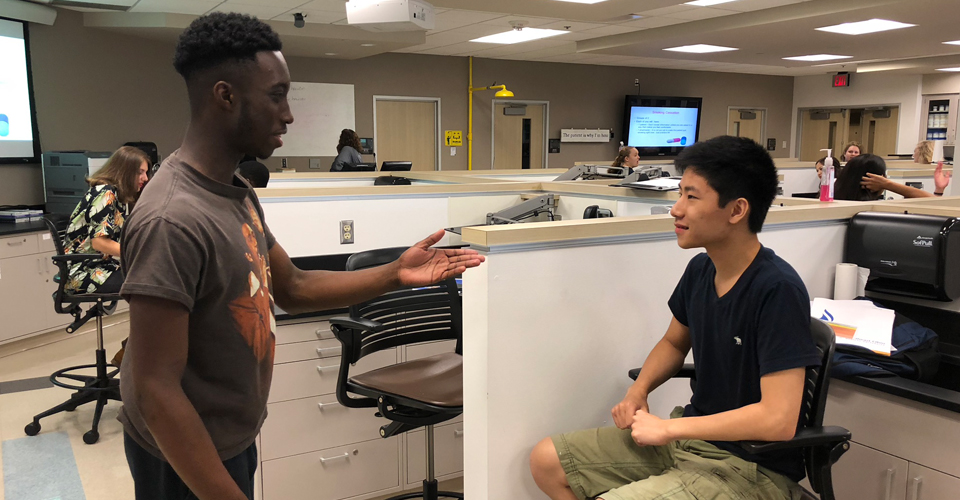Pharmacists interact with patients on a daily basis, so what better way to introduce students to the profession than teaching them how to interview patients? Jodie Turosky, R.Ph., an assistant professor of pharmacy practice, didn’t teach Pathways to Pharmacy 2018 students just any kind of interviewing skills. She introduced the special technique of motivational interviewing to the group of high school sophomores, juniors and seniors visiting the NEOMED campus for a week of introductions to pharmacy careers.
“As pharmacy and medicine students, initially you’re taught to generalize. But motivational interviewing says to look at your patient as an individual,” says Dr. Turosky.
What’s special about motivational interviewing? Dr. Turosky says the technique, often referred to as MI, is a collaborative approach at communicating with patients, instead of getting on a soapbox and preaching to them.
Getting back to the basics
The situations where MI tends to be most successful are conversations with patients about diet and exercise, or about quitting smoking, says Dr. Turosky. To help the students better understand the difference between normal interviewing and motivational interviewing, Dr. Turosky and Shaye Laubert, a rising third-year College of Pharmacy student and a Pathways to Pharmacy student advisor, performed a demonstration. Dr. Turosky played a patient who was interested in alternative weight loss methods. Laubert learned more—and encouraged the patient—by asking MI-inspired questions.
So that the Pathways to Pharmacy students could get a feel for MI, Dr. Turosky had them role-play to practice the technique with each other.
Putting the patient first
To truly care for and put the patient first, pharmacists must be empathetic, Dr. Turosky explained to the students. But as she likes to say, “Empathy is walking a mile in your patients’ shoes—not just feeling sorry for them.”
Before she ended her session, Dr. Turosky told the group of students what she tells her College of Pharmacy students every year: No matter how badly you want to, you can’t save your patients. They have to be willing to save themselves.
